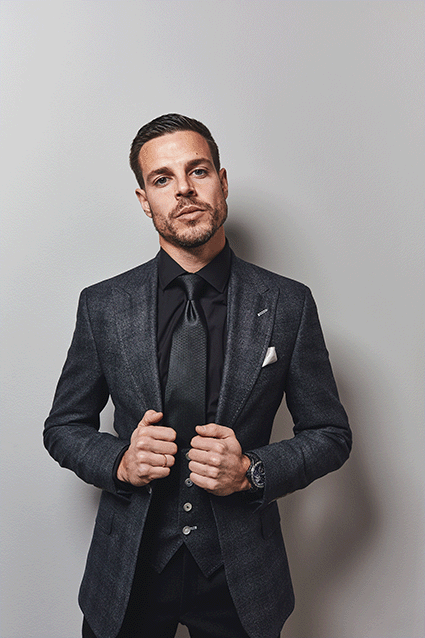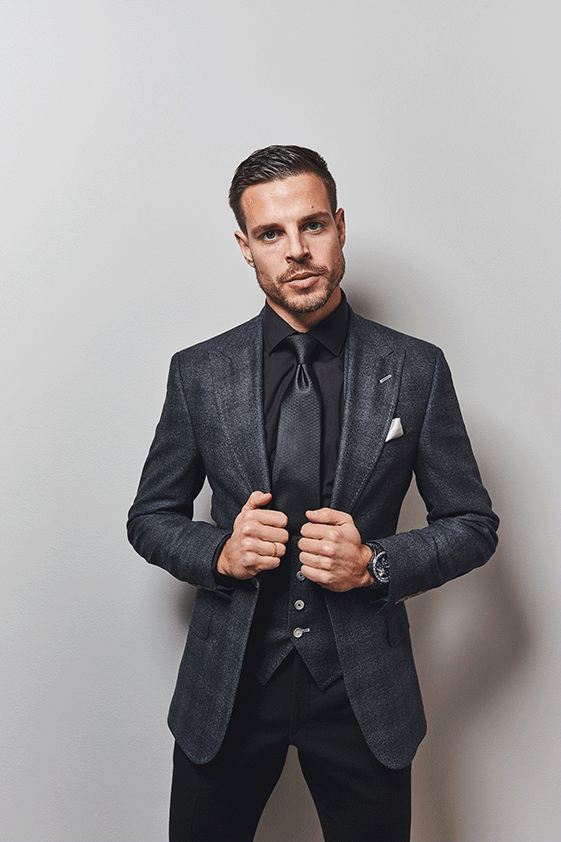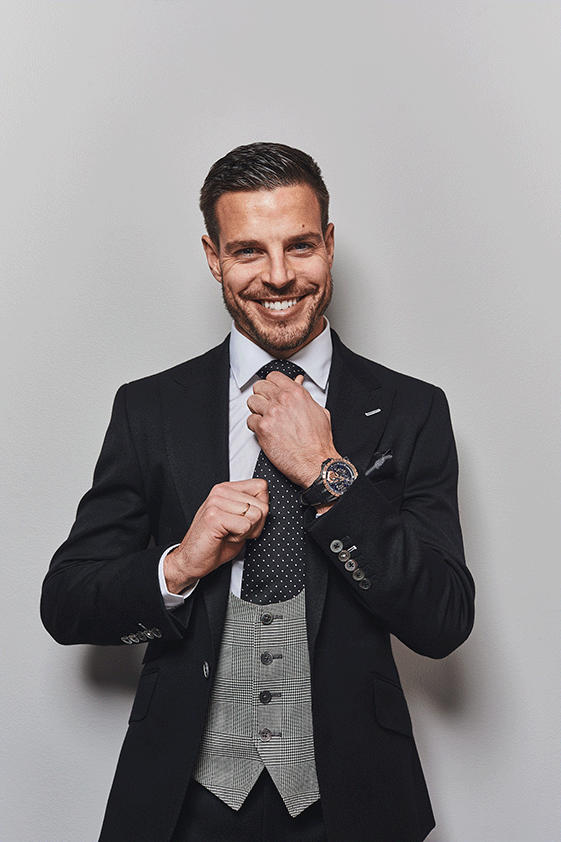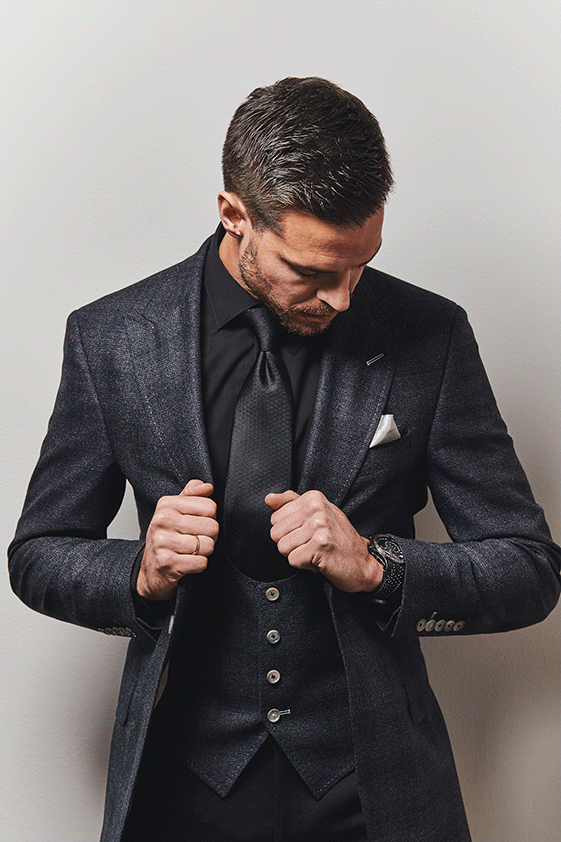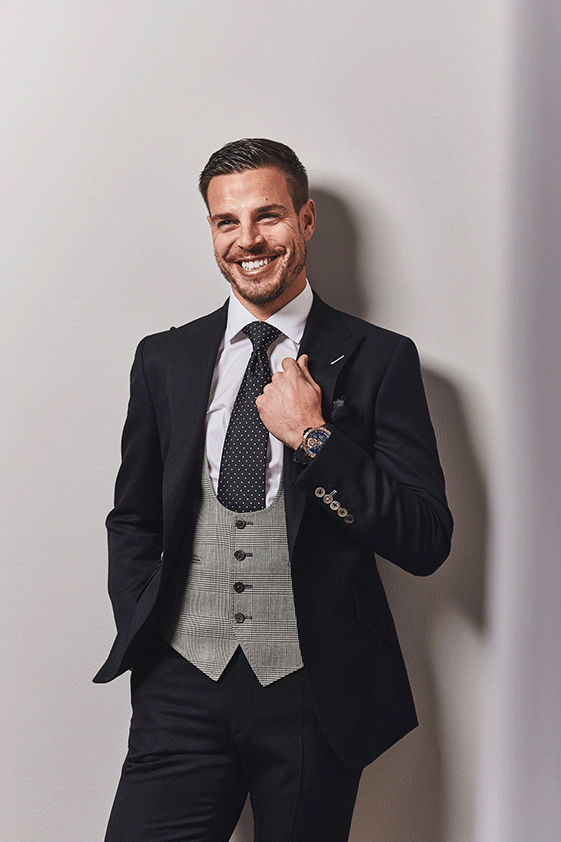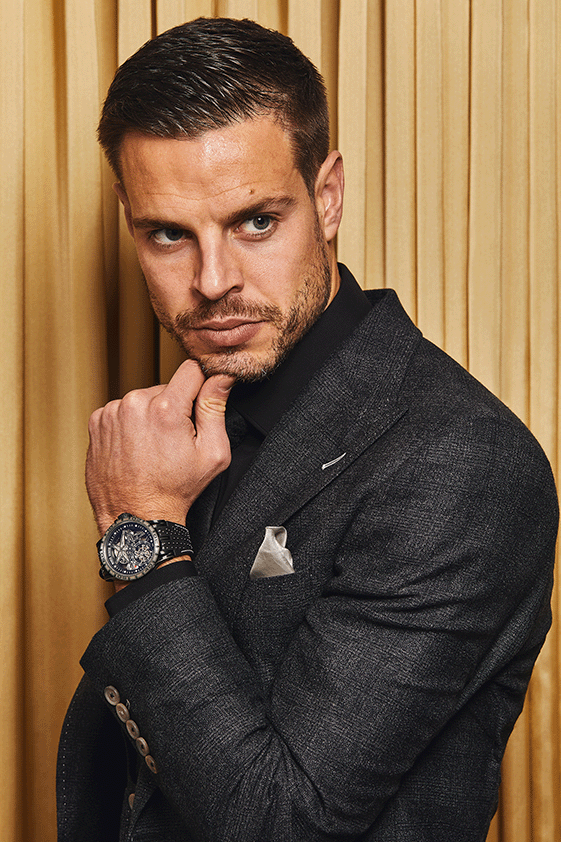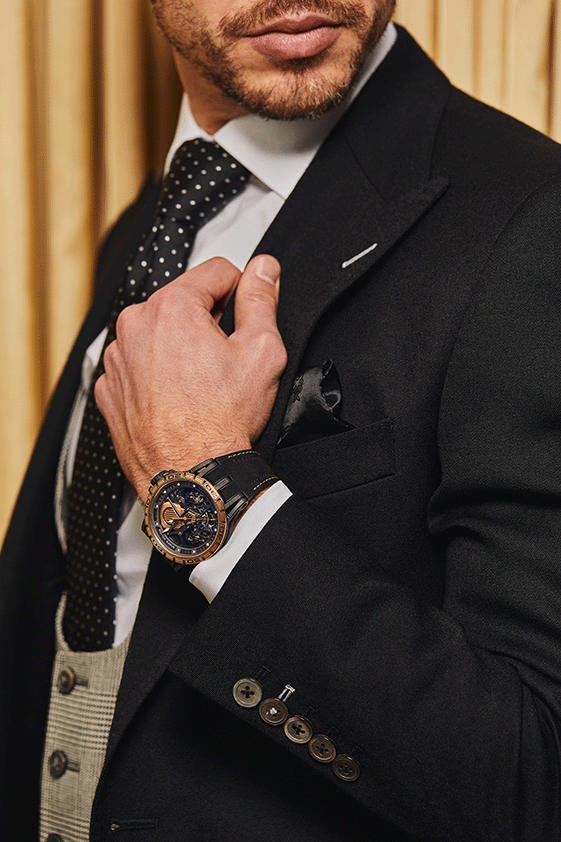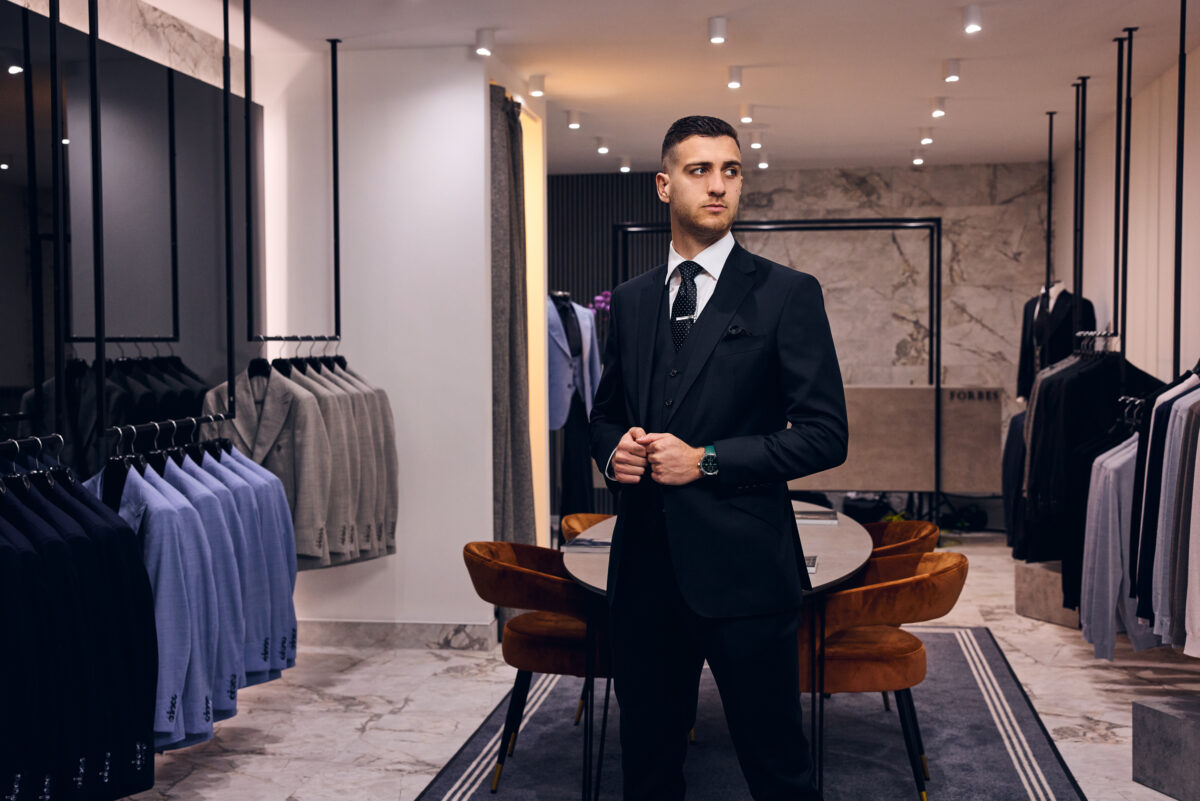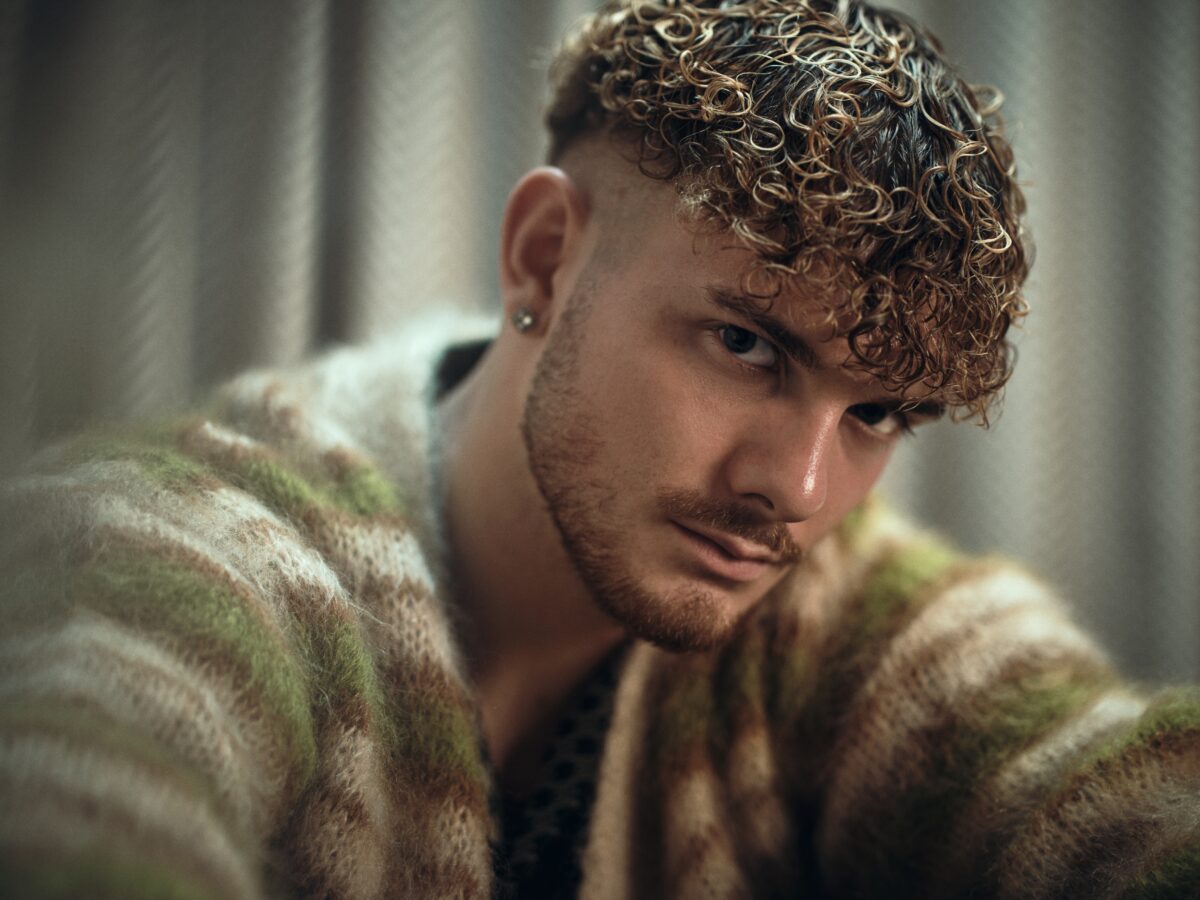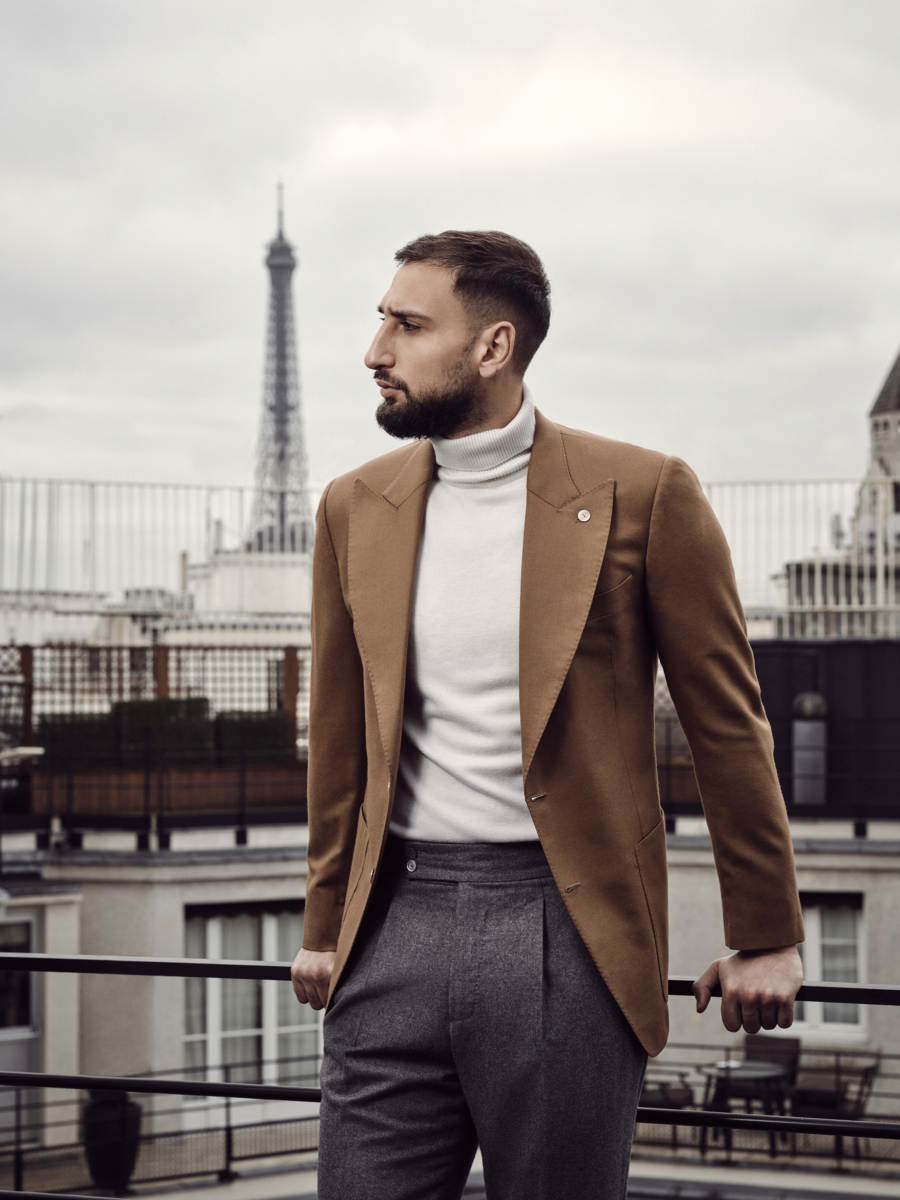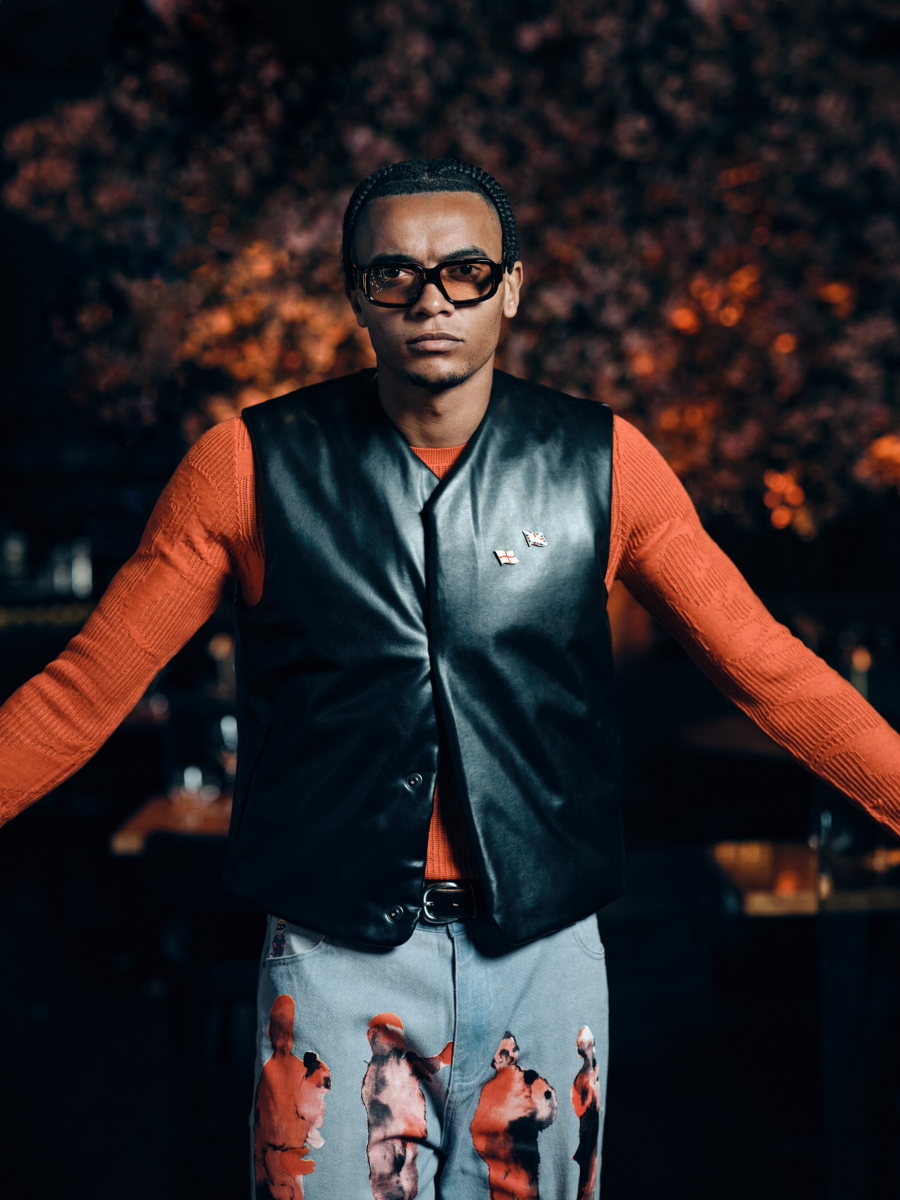Cesar Azpilicueta
In collaboration with Roger Dubuis
world Exclusive
COOL AS YOU LIKE.
UNDER PRESSURE.
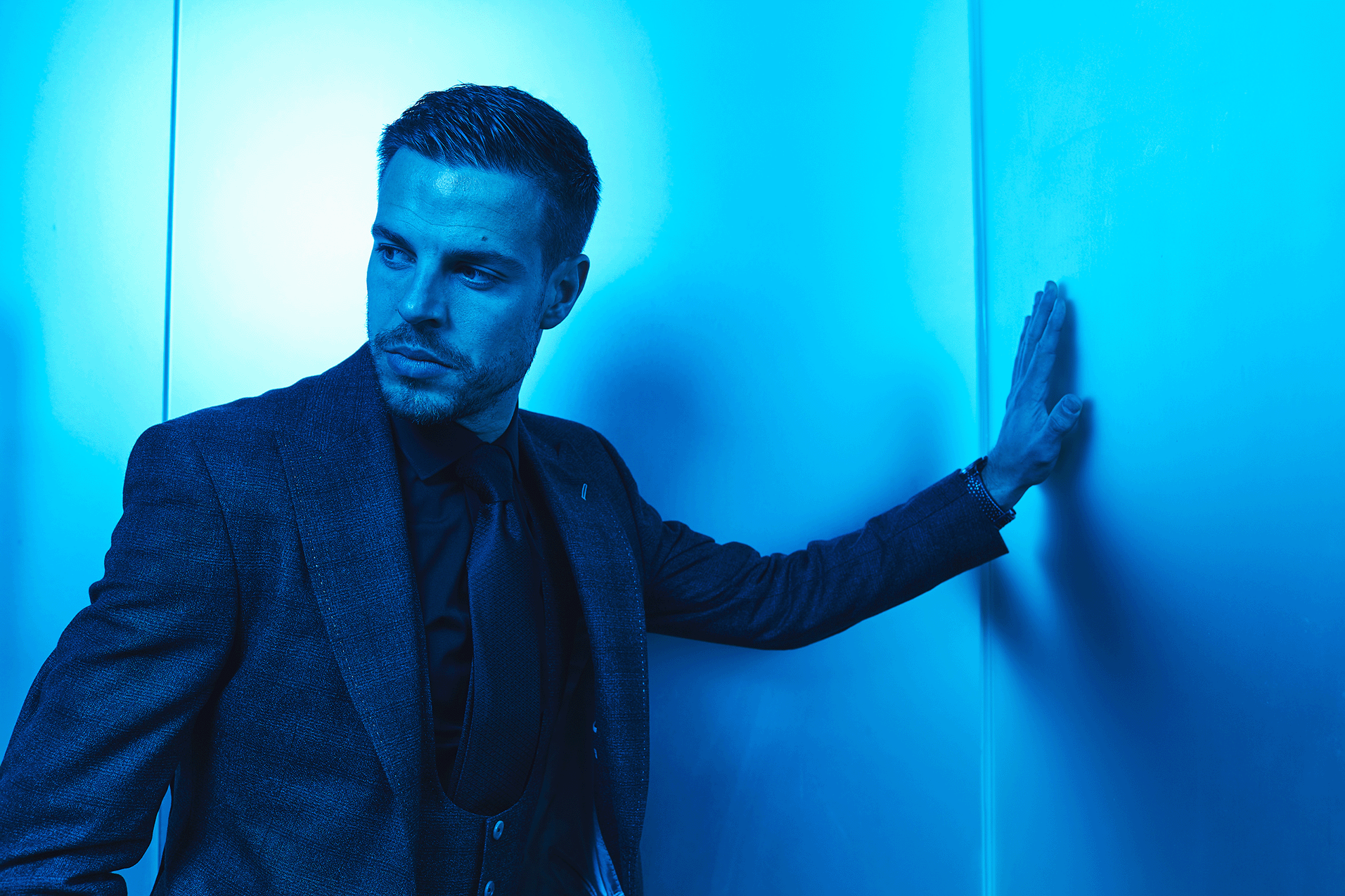
Chelsea captain César Azpilicueta made the move to West London from Marseille in 2012. Eight-years later, with a further six trophies to his name, he’s considered one of the club’s most reliable assets. Famed for being cool under pressure and making headlines this season for surpassing his previous goal scoring records, the 30-year-old international has played a vital role in Chelsea’s transition under former teammate and now manager Frank Lampard.
SWM met Azpilicueta – otherwise known as Dave to Chelsea supporters – at London’s Sanderson Hotel. The down to earth family man reveals his transformation from a striker to a defender, his secret to turning out consistent performances and why his family are the perfect pick-me-up after a tough day at the office…
You arrived at Chelsea aged 22. Eight years later, you are now captain and an important figure at the club. Had you ever imagined you would stay here so long?
When I arrived here I wanted to become an important player for the club. Obviously I am very honoured to be the captain and we’ve have had very some good moments together over the years.
I look forward to the future, too.
Chelsea fans say your name is a tongue twister at times and have decided to simply refer to you as “Dave”. What were your thoughts when you heard about this?
I attended a supporters event together with some of the the Spanish players from Chelsea; Oriol Romeu, Juan Mata, Fernando Torres and myself. The audience were asking us different questions when one supporter asked if they could call me Dave because my name was difficult for them to pronounce. So, from that moment on, everybody used this nickname and they sometimes just still do even though they know perfectly well how to say my surname.
With more young English players from the academy in the squad this season, do you see yourself as a bridge between both the older and the new generation in the dressing room?
I really enjoy the role because we know that we have a lot of young players in the team coming through the academy, some of them are in coming from successful loans or and some are new signings. So my role as a captain is to try to make them as comfortable as possible, to help give them the confidence to express themselves the same way they have been doing until now and to let them know what playing for Chelsea is all about. I always try and help them as best as I can.
You’re fluent in multiple languages. How has this helped you in your career at Chelsea with so many different nationalities in the dressing room?
The ability to speak different languages is very important because sometimes when we are signing a new player, they might not speak any English. I am always trying to improve, though. I have had the chance to play football in three different countries and to try and learn the local languages there. I have the chance to speak the three languages every day with my teammates and it is very important for me to try to be able communicate with them.
What is the secret to being so consistent when you play so many different roles?
I always say it comes from the ambition and the desire to improve every day. When I go to the training ground, I try to prepare myself in the best way possible – even for the training. When I am out on the training pitch, I try to do the maximum that I can and train hard. When I need to do some extra training to reach the maximum level then I will do it.
It’s also very important when you play so many games – and especially in England which is a particularly tough league – to recover well and to take care of your body. We know that every few days we are playing a big game and it’s always difficult. Every year it gets more and more difficult. It’s obviously important to eat well and to sleep well, too.
When a former teammate like Frank Lampard becomes your manager, how do you adapt?
It’s quite natural, it’s the cycle of football. He retired from football and became the manager back in July. We have a good understanding because we played together for two years but the situation is different now. We were playing as teammates a few years ago but now he’s the manager. I am the captain and together we are trying to do the best we can to be successful.
Nobody seems surprised by how well Lampard’s management career has started. What has it been like working with him so far?
I have had a lot of different managers throughout my career and everyone is different. This is only his second year in management but he is always very clear about the way he wants to work and the way he wants us to play. He is also a manager who likes to take care of training and is always working on ways to improve the team.
You’re considered cool, calm and reliable under pressure. How do you do it?
When you have played a lot of games and you have experience it helps you to stay calm. Sometimes when you are younger and you make a mistake or when you are not playing well at the beginning of the game, your head can go. With time and experience you learn. You try to improve what you’re not doing well and you to analyse your own performances. I always try to stay calm because it’s very important to make the right decision and not get distracted by anything and just stay focused. When you’re playing at the highest level, every situation matters and it’s important to be in right frame of mind.
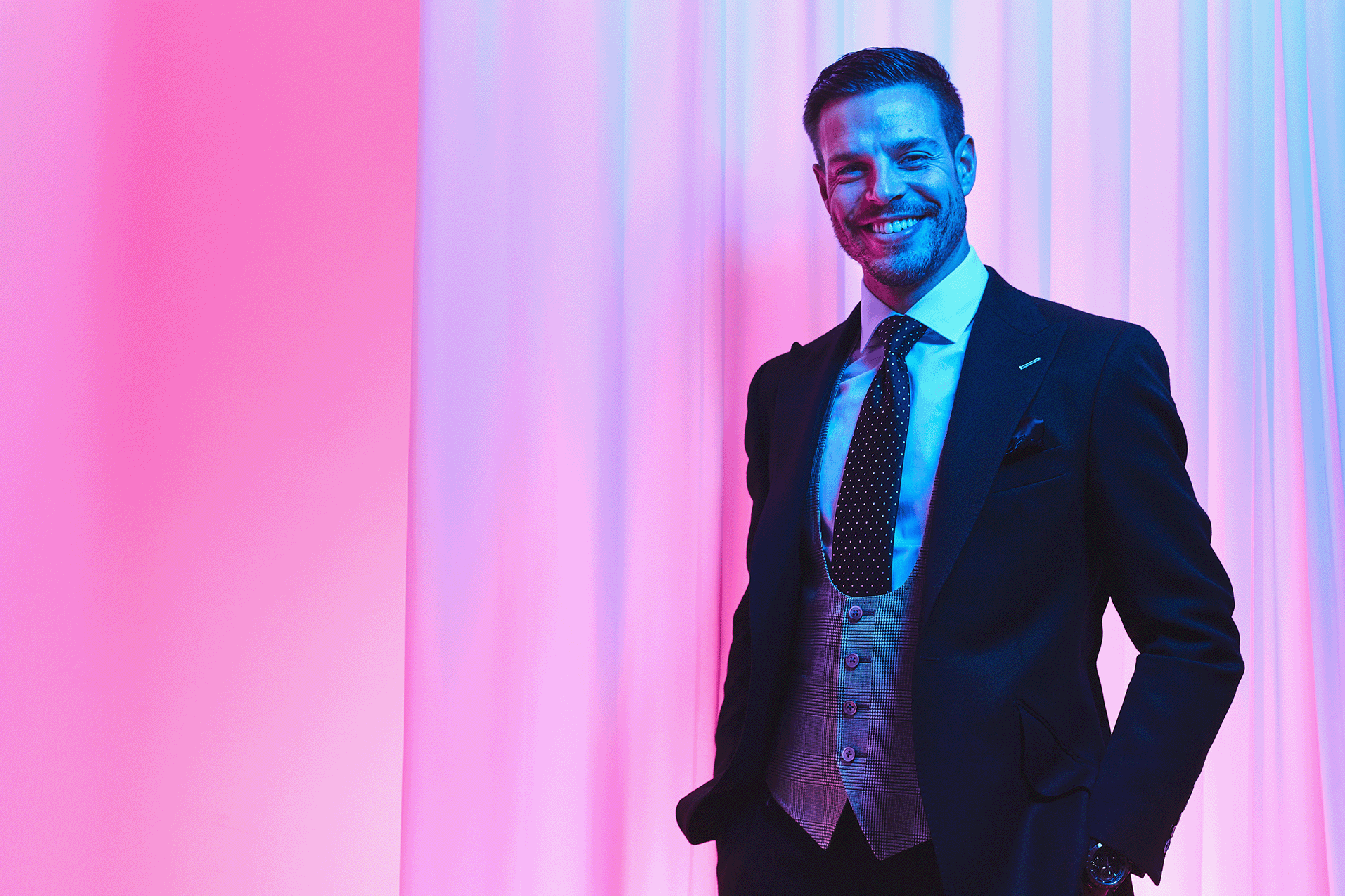
Is it true that you started your career as a forward? What prompted this change of position?
Yes, that’s right. In the academy I was playing as a striker and then I moved to a right winger position and then to right back, but there are no regrets. I even made my professional debut in La Liga as a right winger. At the beginning of the season, the manager at Osasuna at the time, ‘Cuco’ Ziganda, told me he wanted to try me as a right back. So, from then he trusted me in that role. Obviously there were times at the beginning when I was not making the right decisions and sometimes even making mistakes. But the manager trusted my qualities and I kept working hard to adapt to the new position.
This season you have already beaten your previous goal scoring record. Where did the desire come from to be more involved in attacking phases of play?
It is true that I have scored my highest number of goals this season and hopefully I can score a few more between now and the end of the campaign. It is important to contribute that even as a defender when it’s not your main job.
If I can make an impact by scoring goals, too, then I will be happy with that.
Is your threat in front of goal something you have been working on?
The goals I have scored have typically come from set plays. I’ve also been working in training on timing and getting into the right space. When you have good deliveries into the box then it is easier for us, but this is something that I work on when I’m on the training pitch. This season I’m getting the rewards by scoring goals and hopefully I can score more.
Your brother also played professional football. Does this run in the family?
My father was not a professional but he liked going to play football. He was a goalkeeper. But I grew up going to watch my brother play in his games. I would sometimes have a kick around with him at half-time. I have good memories of playing football together with my family.
Who was it at home that was encouraging you to pursue football and supporting your dreams to turn professional?
My aim was always to turn professional and play in the first team. My father would always take me to training, he often stay to watch training and he watched my games, too. My parents let me be the way that I wanted. I was playing with my friends at school up until that time. I had the chance to join Osasuna’s Academy when I was 12 years-old. It gave me the opportunity to train with better coaches and play with better players, but there are not many players who I was with at the academy that went on to be professional footballers. We know how difficult it is to get into the top level and obviously I worked for it. I always had a dream.
Some players find it difficult to settle in England – usually because of the weather. What helped you to make London feel like home?
Where I am from Pamplona on the north of Spain and the weather there is fairly similar to what it is like in Britain. The summer can be different but it’s not a big difference like in comparison to the temperatures in the south of Spain. My family and I always try to adapt to the local culture and try to enjoy the place that we are in. Everyone at the club helped me to settle in, and my teammates made it easy for us.
How important have your partner and your family been in helping you to become successful in England?
She has helped me a lot. When we arrived in England, it was just the two of us. Soon after that we had our first kid – and now we have three kids – so our lives have changed a lot we got here. To have a family and to have them here with me is very important. We spend a lot of time traveling, too. We often take holidays during the breaks and try to enjoy as much time together as possible.
When you have children, there’s no way you can be miserable at home after a defeat. Does spending time with your family help you relax?
My family understand that when I’m not happy when I lose and they always try to lift me up, and try to help. When you see their faces at the end of the day, it’s everything that you can ask for.
What is it that you miss the most from Spain?
Sometimes I miss Spanish food, so we often bring some back from Spain or we go to a Spanish restaurant nearby which is nice. I has been living abroad for nearly 10 years and all three of my children were born here in England so I have adjusted well to the local culture.
Are there particular Spanish restaurants in London that you would recommend?
Cambio de Tercio, Brompton Road, London.
People know very little about you and your personal life. Has it been important to you to keep that aspect your life private?
I know that I am a public figure but I try to keep things private when it comes to my family. We know that with social media everything is shared online. I try to enjoy both sides – I give everything I can when I am with Chelsea or I go away with the national team, but I like to enjoy some privacy if I am spending time with my children, for example.
What are your interests away from football? How do you switch off?
When I am at home I spend time with my kids, whether that is helping them with their studies or sports. I don’t play golf and I don’t have any hobbies, or interests in another sport.
I think my best hobby is to spend time with my family.
Where do you like to travel with your family?
We obviously go to Spain and visit places like Ibiza, Marbella, and my hometown Pamplona. We like to go abroad whenever we have time. We have been to places like Abu Dhabi and Dubai, which are all good places for the kids and they really enjoy it. We also take them to Disneyland Paris, in fact I have been there more times now as a dad that when I was a kid. [Laughs]
Some of your former teammates have opened restaurants and entered into all sorts of business ventures. Are you working on any projects?
One project I have been involved in for a few years is in e-sports. I spent a lot of time when I was younger playing video games, although I don’t have the time to play anymore, obviously. The project hasn’t launched yet but it’s something that I have been working on for a while and will happen soon.
"SWM can answer my demands all over the world, with an amazing service and magazine."
Cesar Azpilicueta

